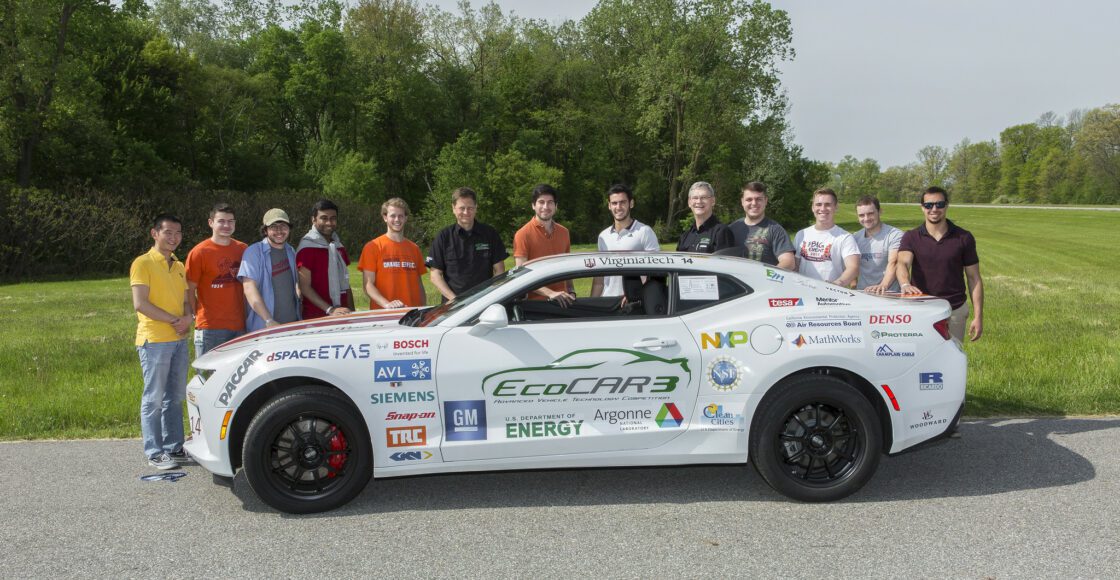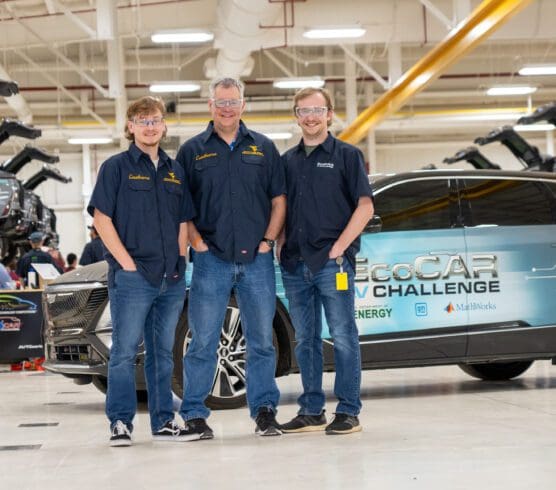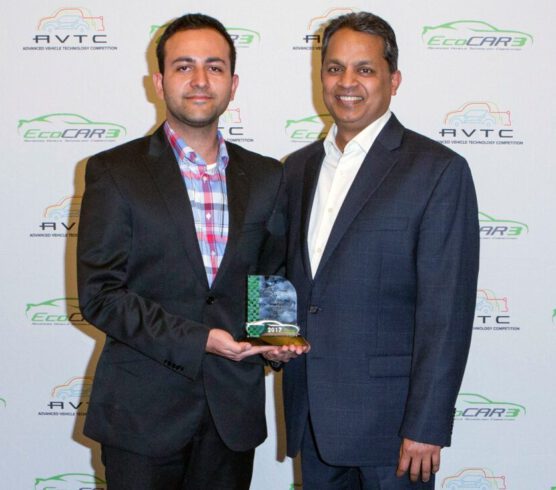The moment Jonathan Butcher attended an outreach event at the University of Wisconsin as a high school senior, he knew he wanted to become involved in Advanced Vehicle Technology Competitions (AVTC).
“I was totally hooked. I said, ‘This is for me. This is what I want to do,’” says Butcher, an HEV controls engineer for Ford Motor Company.
Butcher’s early interest in electric vehicles was influenced by his high school shop teacher, who built his own electric car. It seemed like the beginning of a new wave of technology and he wanted to be a part of it.
Upon entering the University of Wisconsin, Butcher joined the FutureCar team as the mechanical team leader. His group focused on fabrication, new parts, and packaging and fixing problems with the vehicle. Butcher believes early exposure to developing technologies in the competition gave him an edge in the job market.
“It was relatively new,” he says, “so someone who had just worked on it for a year or two had just as much experience as someone who had done it as their full-time job.”
Butcher says his involvement with FuturCar was the single most important activity during his college career. Not only did it give him experience working on a large, complex project comparable to real-world engineering projects, it taught him a skill set that can’t be taught in a classroom.
“Skills like teamwork, leadership, goal-setting, time-management and project management are addressed in college courses, but very few experiences really test students on these invaluable skills,” Butcher says.
In many ways, Butcher’s current job reflects the same work he did during the FutureCar competition. Determining the problems in the vehicles, especially software issues, remains a major focus of his work. Through data collection and evaluation, he can try to optimize certain attributes, such as fuel economy or durability.
Every few months, Ford releases new and improved software, but Butcher says that the most challenging part of the job is trying to balance the requests and needs of the different groups at Ford. For example, the emissions team may want to reduce the number of times they start and stop the engine while the fuel economy team may want to increase this number. All the while, he needs to maintain the basic components of the vehicle, such as safety and reliability.
As EcoCAR 2 teams develop their vehicle designs, Butcher encourages them to allocate enough time for testing. He says it’s important to have a plan that is ambitious, but not so aggressive that it affects the ability of the car to function properly.




